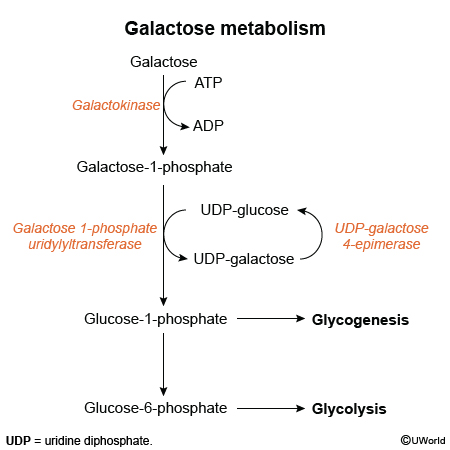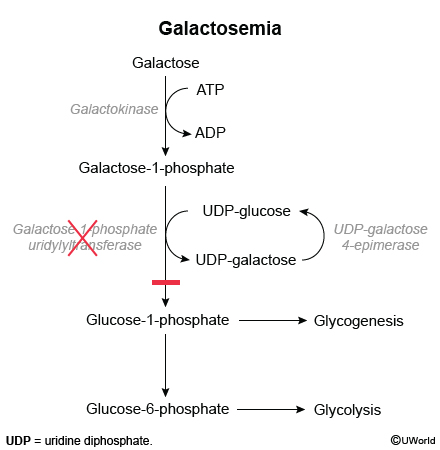Galactosemia
Article Sections
Introduction
Galactosemia is a rare metabolic disorder characterized by the inability to metabolize galactose. Patients typically have jaundice, vomiting, and hepatomegaly in the early neonatal period due to an accumulation of toxic metabolites, and they are at risk for cataracts, Escherichia coli sepsis, and neurodevelopmental delay.
Pathogenesis
Galactosemia is an autosomal recessive disorder caused by a deficiency in one of the several enzymes involved in galactose metabolism (Figure 1). Galactose is a monosaccharide component of lactose (found in human and cow's milk) and is metabolized to a substrate that can be used in glycolysis. Metabolism begins with the phosphorylation of galactose by galactokinase (GALK) to form galactose 1-phosphate, which is then converted to glucose-1-phosphate. This conversion is catalyzed by galactose 1-phosphate uridyltransferase (GALT) and consists of a uridine diphosphate (UDP) transfer from UDP-glucose to UDP-galactose.
Continue Learning with UWorld
Get the full Galactosemia article plus rich visuals, real-world cases, and in-depth insights from medical experts, all available through the UWorld Medical Library.
Unlock Full AccessFigures

